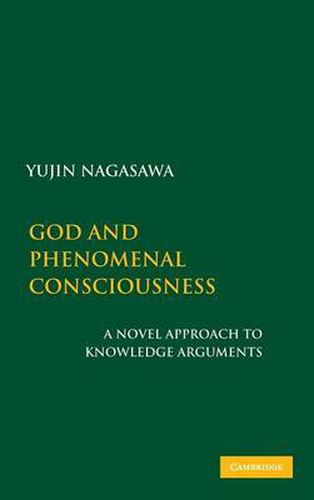Readings Newsletter
Become a Readings Member to make your shopping experience even easier.
Sign in or sign up for free!
You’re not far away from qualifying for FREE standard shipping within Australia
You’ve qualified for FREE standard shipping within Australia
The cart is loading…






In God and Phenomenal Consciousness, Yujin Nagasawa bridges debates in two distinct areas of philosophy: the philosophy of mind and the philosophy of religion. First, he introduces some of the most powerful arguments against the existence of God and provides objections to them. He then presents a parallel structure between these arguments and influential arguments offered by Thomas Nagel and Frank Jackson against the physicalist approach to phenomenal consciousness. By appealing to this structure, Nagasawa constructs novel objections to Jackson’s and Nagel’s arguments. Finally, he derives, from the failure of these arguments, a unique metaphysical thesis, which he calls ‘non-theoretical physicalism’. Through this thesis, he shows that although this world is entirely physical, there are physical facts that cannot be captured even by complete theories of the physical sciences.
$9.00 standard shipping within Australia
FREE standard shipping within Australia for orders over $100.00
Express & International shipping calculated at checkout
In God and Phenomenal Consciousness, Yujin Nagasawa bridges debates in two distinct areas of philosophy: the philosophy of mind and the philosophy of religion. First, he introduces some of the most powerful arguments against the existence of God and provides objections to them. He then presents a parallel structure between these arguments and influential arguments offered by Thomas Nagel and Frank Jackson against the physicalist approach to phenomenal consciousness. By appealing to this structure, Nagasawa constructs novel objections to Jackson’s and Nagel’s arguments. Finally, he derives, from the failure of these arguments, a unique metaphysical thesis, which he calls ‘non-theoretical physicalism’. Through this thesis, he shows that although this world is entirely physical, there are physical facts that cannot be captured even by complete theories of the physical sciences.